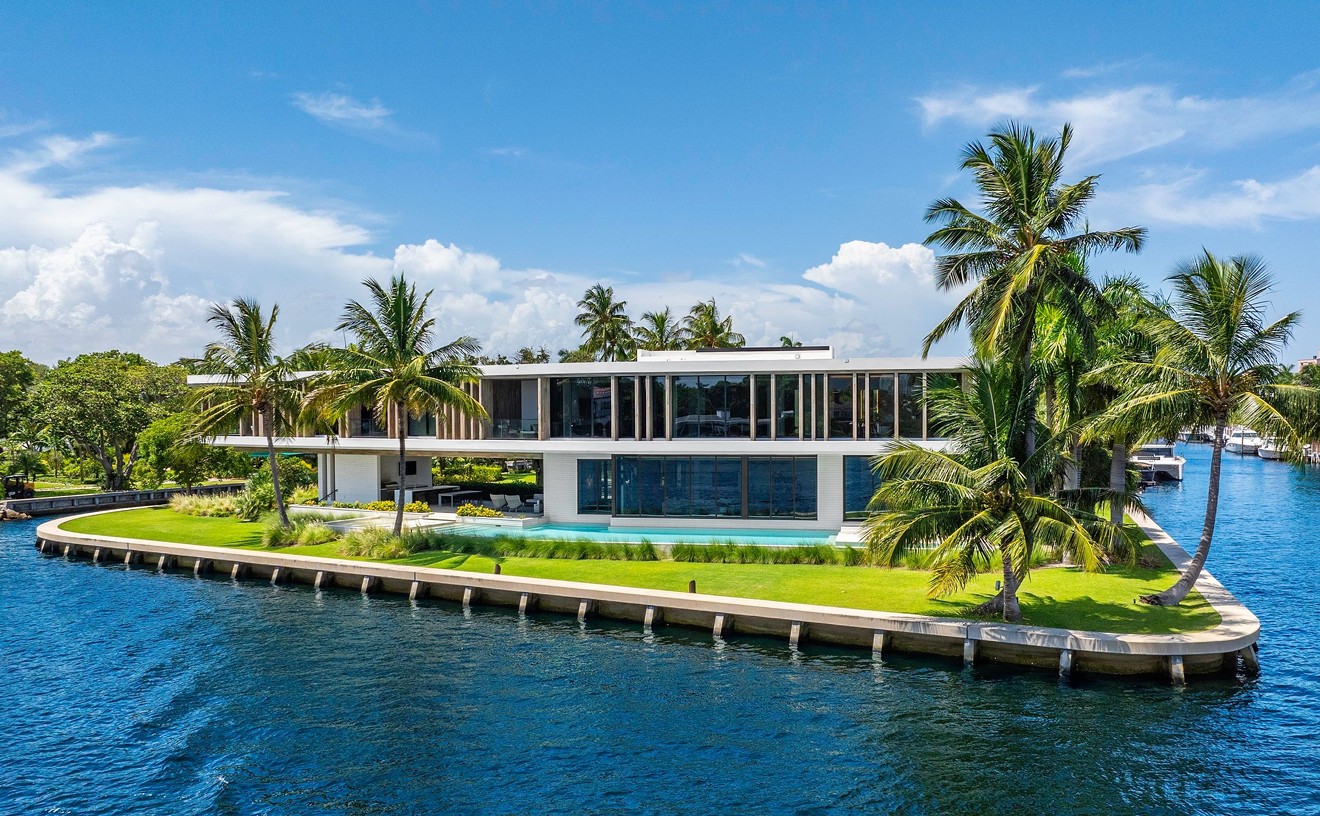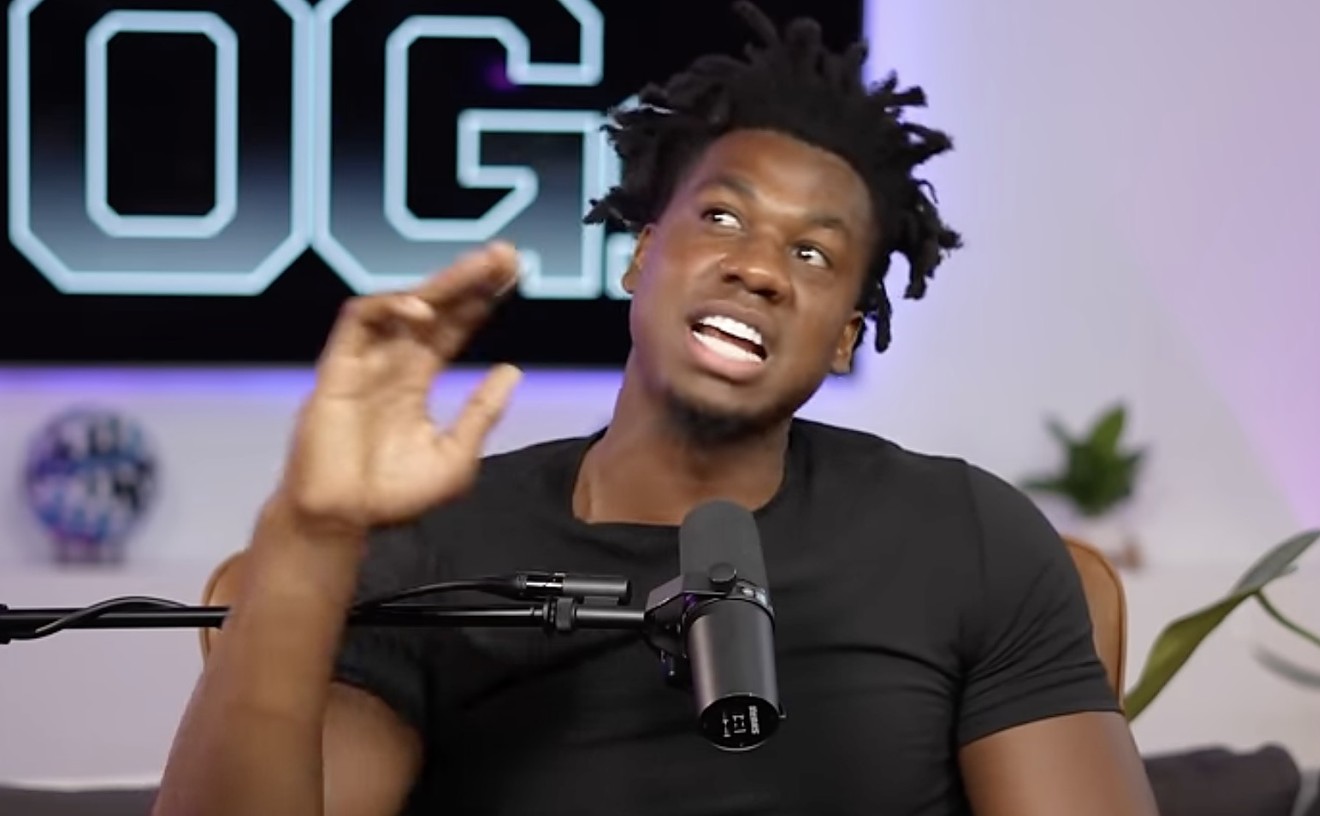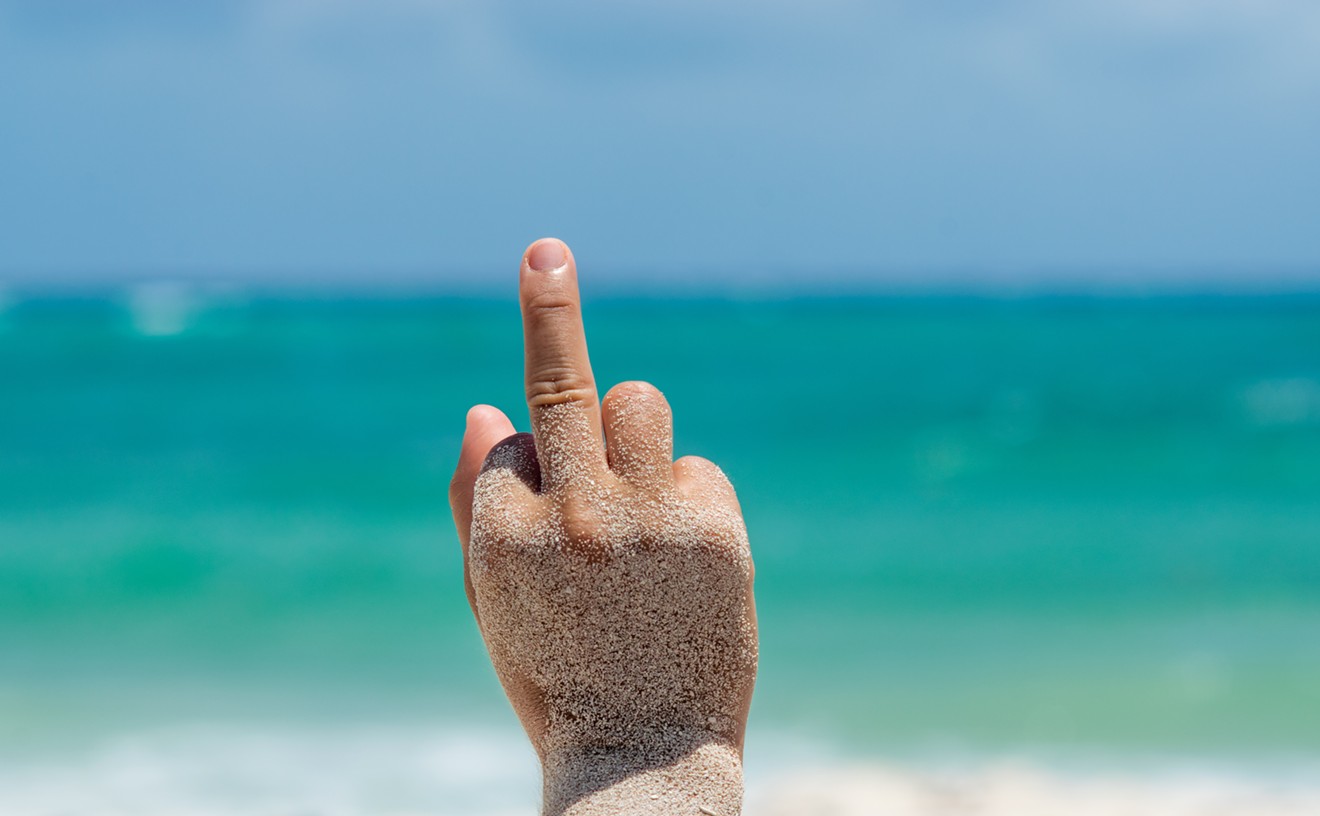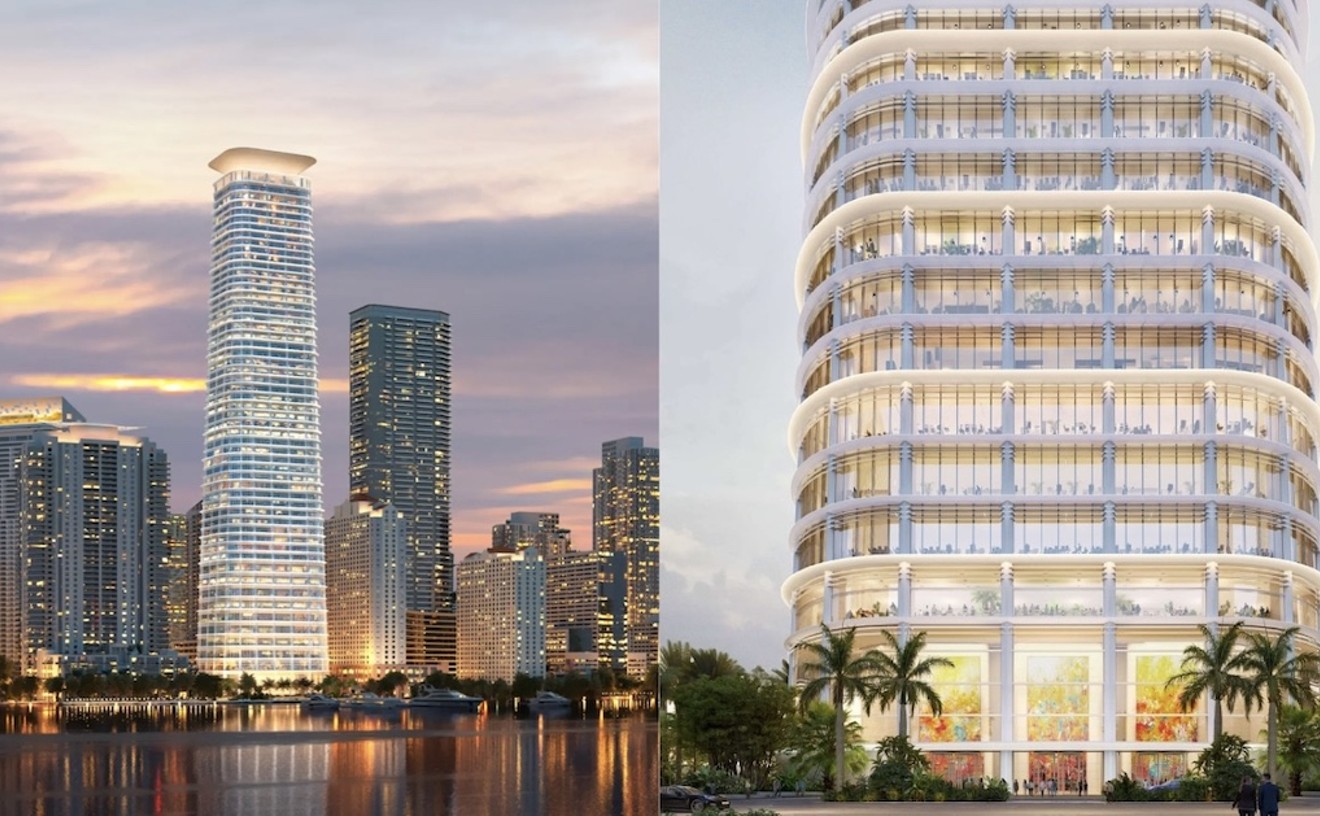When 95-year-old Lloyd Miller stepped to the mic to testify at a congressional hearing in Homestead earlier this month, the three Republicans on the panel may not have known they were about to be versed by a conservation legend.
U.S. Reps Ileana Ros-Lehtinen, Mario Diaz-Balart and Carlos Curbelo had called the special session to discuss the National Park Service’s plan to set aside 10,000 acres of the 170,000 acre Biscayne National Park — or 6 percent — as a “no fish” zone. The plan is an effort by the NPS to repopulate a dwindling fish population in the park and protect degraded coral reefs and is backed by marine scientists. The members of congress were concerned about what the plan would mean for fishermen, who had voiced opposition since the conservation zone was announced in June. The hearing was a chance for them to express their concerns.
But proponents of the no fish zone delivered their opinions, too. And none made an entrance quite like Miller.
“It's so important for us to save [the Park],” Miller told the representatives. “If anyone should be able to speak at something like this, it’s me.”
After all, he literally helped create the park — and its barrier reefs and mangrove forests — in the '60s.
Throughout the '50s, Florida’s population was booming. In 1961, area landowners voted unanimously to create the City of Islandia, a resort town on what is now Elliott Key. Then, in 1962, plans for a major industrial seaport called Seadade were announced. It was to include an oil refinery and a 40-foot-deep dredged channel, which would require cutting through the coral reef.
Miller, then a Pan American Airways employee, was a key advocate against both plans, and led efforts to petition government officials to instead create a park, which would protect the islands, bay and the reef. In 1968, President Lyndon Johnson signed a bill to create Biscayne National Monument, which would later become Biscayne National Park. It’s the only national park in mainland United States with a coral reef and home to a diversity of marine and terrestrial wildlife.
“And that’s the story of the park,” Miller tells New Times, matter-of-factly. “I’m a conservationist at heart and that’s just what we do.”
Since the '60s, Miller has been a constant advocate for conservation in the face of rapid development across South Florida. For years, he served as the President of the local Isaak Walton League chapter, taking up issue after issue in front of politicians. For his work, he’s won numerous awards and honors, including the prestigious Marjory Stoneman Douglas Award from the National Parks Conservation Association. As he sees is, opposition to the current no fishing zone amounts to "exploitation."
"Leave it up to the experts," Miller says. "That’s why they became experts."
Conservationists across South Florida hail Miller's long-time activism for helping to bring about some of the most substantial changes in Florida's conservation history, establishing the preserved places we all now enjoy.
“Those of us who are active [on conservation issues] really stand on the shoulders of the giants who came before,” says Alan Farago, the President of Friends of the Everglades. “And Lloyd really is one of the few iconic environmentalists we’ve had in Miami-Dade.”
Matthew Schwartz, who founded the South Florida Wildlands Association in 2010, agrees: “Our organization is eternally indebted to Lloyd Miller,” he says. “We were moved to see that he managed to stand up in front of the members of Congress. We were shocked.”
Robert Skinner, who is the current president of the local Isaak Walton League, says Miller is still "sharp and feisty on the issues."
Indeed, that gutsy attitude has been a hallmark of Miller’s environmentalism over the years. In one widely publicized incident in 1988, he ended up in a brawl that made local news headlines. That November, at a day-long public hearing on Dade’s Development Plan, Miller and Bill Losner, president of the First National Bank of Homestead, argued over a plan to widen Krome Avenue. Miller claimed Losner followed him home after the meeting, but Losner claimed he wasn't following Miller. Eventually, the two men ended up at a dead end near Coral Reef Drive, according to Miami Herald archives. "Losner hit Miller on the back of the head with a pistol, and Miller struck back with a lead-filled club. Both men claimed self-defense."
“Environmentalists at the time were not treated with respect,” Farago says. “It took a lot of dedication and a huge amount of commitment to confront the kinds of animosity shown during those years.”
These days, the fights may not be as heated. But environmentalists say the same passion and dedication is needed now more than ever. As Miami Dade’s population grows at a rapid pace, Schwartz says protected areas are being “attacked from all sides" — from new nuclear reactors to expanded oil drilling. "It's just non-stop," he says.
And that's why Lloyd Miller isn't stopping either. At 95, he remains dedicated to preserving as much as he can of South Florida, the paradise that's been his home since 1945, and that has inspired so many years of impassioned activism.
“The only thing that’s different year to year is that there’s less of what we were trying to protect than last year,” Miller says. “That’s what conservation is all about.”

Audio By Carbonatix
[
{
"name": "Air - MediumRectangle - Inline Content - Mobile Display Size",
"component": "19274298",
"insertPoint": "2",
"requiredCountToDisplay": "2",
"watchElement": ".fdn-content-body",
"astAdList": [
{
"adType": "rectangle",
"displayTargets": "mobile"
}
]
},{
"name": "Editor Picks",
"component": "17482312",
"insertPoint": "4",
"requiredCountToDisplay": "1",
"watchElement": ".fdn-content-body",
"astAdList": [
{
"adType": "rectangle",
"displayTargets": "desktop|tablet"
},{
"adType": "rectangle",
"displayTargets": "desktop|tablet|mobile"
}
]
},{
"name": "Inline Links",
"component": "18711090",
"insertPoint": "8th",
"startingPoint": 8,
"requiredCountToDisplay": "7",
"maxInsertions": 25
},{
"name": "Air - MediumRectangle - Combo - Inline Content",
"component": "17482310",
"insertPoint": "8th",
"startingPoint": 8,
"requiredCountToDisplay": "7",
"maxInsertions": 25,
"watchElement": ".fdn-content-body",
"astAdList": [
{
"adType": "rectangle",
"displayTargets": "desktop|tablet"
},{
"adType": "rectangle",
"displayTargets": "desktop|tablet|mobile"
}
]
},{
"name": "Inline Links",
"component": "18711090",
"insertPoint": "8th",
"startingPoint": 12,
"requiredCountToDisplay": "11",
"maxInsertions": 25
},{
"name": "Air - Leaderboard Tower - Combo - Inline Content",
"component": "17482313",
"insertPoint": "8th",
"startingPoint": 12,
"requiredCountToDisplay": "12",
"maxInsertions": 25,
"watchElement": ".fdn-content-body",
"astAdList": [
{
"adType": "leaderboardInlineContent",
"displayTargets": "desktop|tablet"
},{
"adType": "tower",
"displayTargets": "mobile"
}
]
}
]










